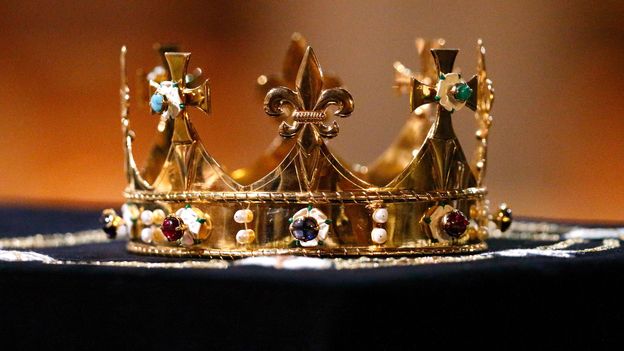BBC Culture asked the filmmakers why they chose not to consult Taylor on his portrayal. They said: “The university’s version of events has been extensively documented for the last 10 years.
And yet Langley’s side of the story was also “well documented.” There is an award-winning 2013 documentary, Richard III: The King in the Car Park, which premiered on Channel 4 and was presented by Simon Farnaby. Langley effectively stars in it and was an associate producer. It briefly shows Taylor and several other university employees. This program was quickly followed by another documentary, Richard III: The Unseen Story. “In this film, the people involved tell the whole story,” says Farnaby in his introduction. Again, Langley was an associate producer; Here, too, employees of the university were introduced.
And indeed, in her book, Langley thanks Taylor and the University: “To this remarkable center of learning, Leicester University, particularly Professor Mark Lansdale, Dr. Julian Boon and Dr. Turi King for her many kindnesses and Richard Taylor, Deputy Registrar, for his decision to support the project.”
It’s worth nothing that a 2020 study found that 47% of Britain’s archaeologists are women (up from 46% in 2012), but you might not know that from the film. According to Taylor, “There’s a theme of misogyny that runs through the film. Now the only way the male authors could do this was by airbrushing out the university’s project team to write out at least three of the senior female academics involved. Turi King is not mentioned at all in the film, nor is Lin Foxhall [professor of Greek archaeology and history]Neither does Sarah Hainsworth [professor of materials engineering], both of which played a key role. This is no coincidence. This puts the university, as a male-dominated team, against a lonely woman. The male authors have thus excluded the contribution of these academics and scientists.”
The filmmakers told BBC Culture: “None of them were involved in the search for the remains of the king. The search is the subject of our film, not DNA analysis. Turi King had a conversation with Philippa prior to the excavation and this ties into the DNA analysis if the remains are found, not the search.”
However, King says that she was accepted into the project by the university in June 2011, over a year before the excavation began, and that she helped with the excavation and there is footage of her doing it. She told BBC Culture: “I was so down for a few days after seeing it [The Lost King] because I used to be so proud of this massive, wonderful project, which was an amazing partnership between so many people, all contributing their expertise. That was the joy of it. So it was really sad to see how it’s portrayed that way, especially how they portray certain members of the team in such a misleading way.
The British Archeology Magazine runs a lengthy article, currently available for download, that gives a detailed defense of the university team and suggests that The Lost King got some things seriously wrong. So has a film about a tireless woman’s quest to right historical wrongs lead to him committing his own wrongs? After all, as the patron of the Richard III Society put it, reputation is “fragile.”
The Lost King is in UK cinemas now and will be released in the US in 2023.
Love Movies and TV? Connect BBC Culture Film and TV Club on Facebook, a community for cinephiles around the world.
If you would like to comment on this story or anything else you’ve seen on BBC Culture, head over to ours Facebook page or send us a message Twitter.
And if you liked this story, Sign up for the weekly bbc.com features newsletter, called The Essential List. A handpicked selection of stories from BBC Future, Culture, Worklife and Travel, delivered to your inbox every Friday.
#controversy #surrounding #incredible #archaeological #discovery


Leave a Comment